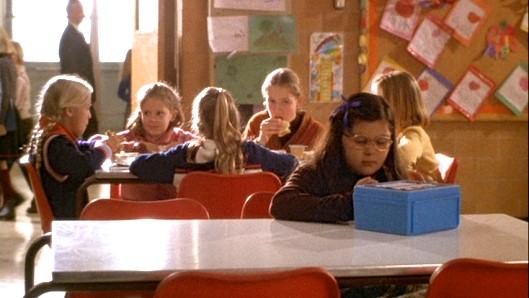
Lunch hour at school. High noon.
For many kids it’s the loneliest hour of the day. Lunch hour is when you find out if you have friends. And everybody else finds out if you have friends, too. In the cruel subculture of most schools, there are always a number of kids who are stranded on the outside looking in.
But every now and then something miraculous happens.
Someone from an established circle of friends approaches someone who has been left out and says, “May I sit here?”
Somewhere in the background, the friends of that brave person are whispering: Don’t do it. She’s not worth it. She’s beneath you. Yet it happens anyway. And a moment like that may save the entire semester for a lonely kid.
But make no mistake: It costs something for the person who has friends to lose.
The Middle East – in Bible times and today – is an honor-based culture. Honor is everything. In the minds of many, it is better to die than to lose your honor, or to cost your family its public standing.
Honor was a limited commodity in the time of Jesus. There was only so much to go around. If one person gained honor, somebody else had to lose theirs in order to balance the accounts.
In the Gospels, Jesus seems oblivious to such unwritten rules. In John chapter four he sits down in the presence of a Samaritan woman who has come to fill her empty bucket at the local well. He even initiates a conversation with her. What is he thinking?
The religious establishment considered Samaritans racial half-breeds and theological heretics. The dirt of Samaria was deemed unworthy for the soles of righteous feet.
Furthermore, this woman has been married five times – and five times her name has appeared in the public notice section of the newspaper under Filed for Divorce. Now she’s got a live-in lover. Her neighbors apparently treat her like trailer trash. No rabbi comforts her. According to the theology of the day, she is unworthy of God’s kindness.
John tells us that Jesus meets her at “the sixth hour.” That’s high noon. She’s come to draw water at the hottest time of the day. Some scholars suggest that this is the hour when she’s least likely to experience the judgmental stares of her neighbors, who would typically arrive at the well at dusk.
Her public honor savings account is bankrupt. She has nothing to give Jesus. But he has a lot to lose. Every time Jesus goes into the house of a tax collector, or touches a leper, or pays attention to a prostitute as if she is a real person and not just a dirty object, honor flows from his account to their accounts.
The most amazing thing about the Gospels is that God drops his stock in order to raise ours.
I once heard a teacher summarize the encounter of Jesus and the Samaritan woman with these words: She had come with a bucket. He sent her back with a spring of living water. She had come as a reject. He sent her back being accepted by God himself. She came wounded. He sent her back whole. She came laden with questions. He sent her back as a source for answers. She came living a life of quiet desperation. She ran back overflowing with hope.
Every now and then something miraculous happens.
A brave person whose bucket is full chooses to bless someone whose bucket is empty. And the world becomes a little more whole.
You can be that person today.
